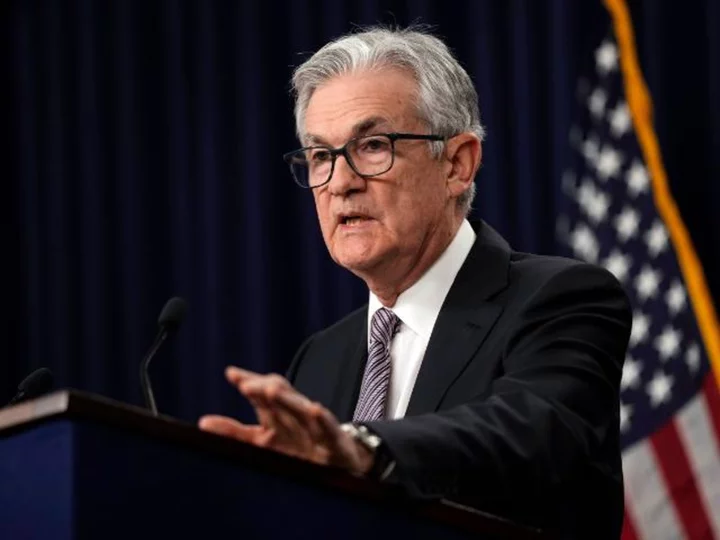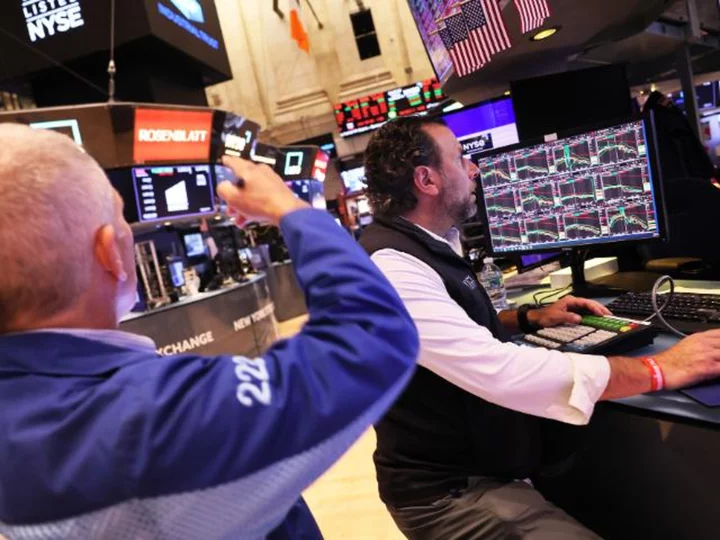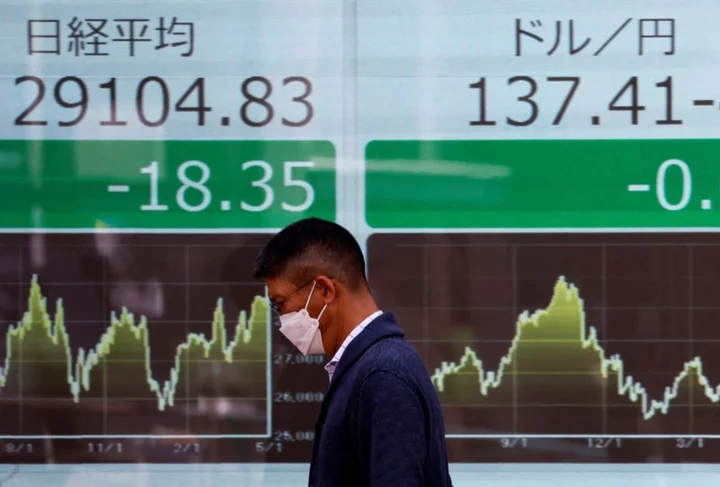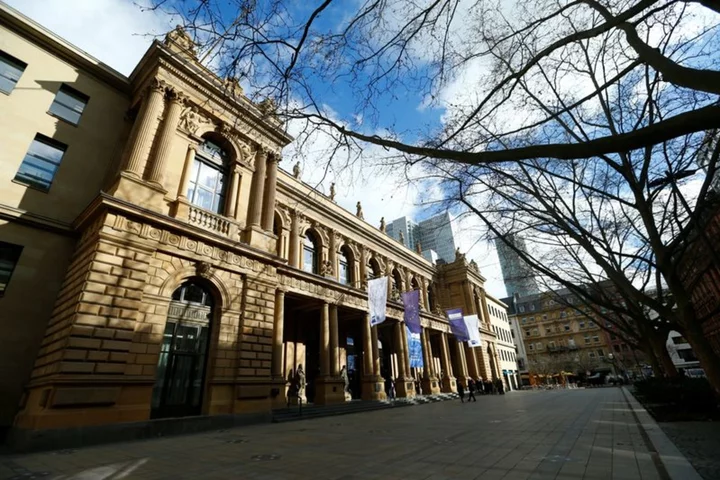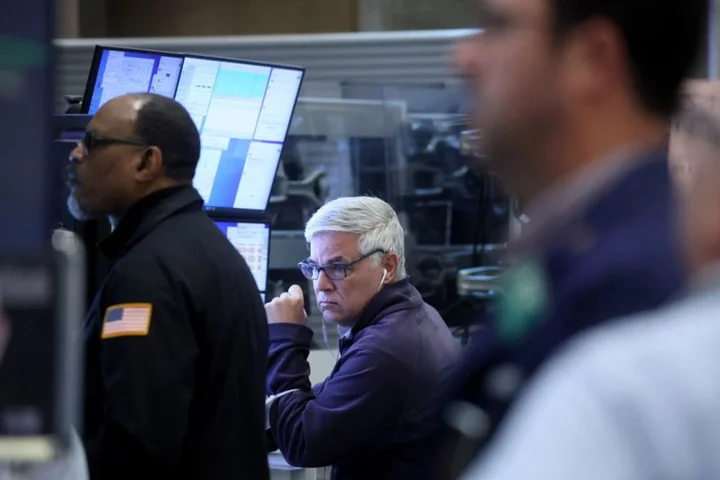Americans are losing faith in Federal Reserve Chair Jerome Powell. That's bad news.
What's happening: Only 36% of Americans say they have confidence in Powell on the economy, according to a Gallup survey released Tuesday. That's a new low during Powell's six-year tenure as Fed chief and the lowest reading Gallup has had for any Fed chair — its data goes back to former Chair Alan Greenspan in 2001.
About 28% of Americans say they have almost no confidence in the Republican Fed head, first nominated by former President Donald Trump.
Why it matters: Economists at the Fed work hard to maintain the institution's reputation as a stoic pillar of wisdom, far removed from political whims and, most importantly, effective at making policy. This image obsession serves an important purpose: The central bank's dependability hinges on Americans believing that it's ... dependable.
If Powell says the Fed will reduce historically high inflation rates, Americans believe him and change their behavior to reflect that. It's a self-fulfilling prophecy.
That's no secret. In prior meeting minutes, Fed officials noted strong credibility and communication had "already contributed to a notable tightening of financial conditions that would likely help reduce inflation pressures by restraining aggregate demand."
Recent developments in the banking sector make that dependability even more important. The Fed needs Americans to believe that regional banks are stable and that it has the ability to oversee and maintain that stability — the future health of the economy depends on it.
"If over time, there's a broader loss of confidence that the Fed's going to be unable to achieve its objective, that could influence consumer habits," said Brian Rehling, head of global fixed-income strategy for Wells Fargo Investment Institute.
Waning certainty: Perception doesn't always line up with reality, and the economists at the Federal Reserve are susceptible to capricious economic shifts. "Americans' growing concern about the economy is manifested in their views of the key government officials responsible for economic policy," noted Gallup senior editor Jeffrey Jones.
The Fed has worked to slow inflation by raising interest rates 10 times in a row in just over a year. Those painful hikes have delivered a hit to the economy and while inflation rates are easing, they're still far from the Fed's 2% target level.
"The dead giveaway that the Fed has a problem is that the American people know who Powell is," said Vincent Reinhart, chief economist at Dreyfus and Mellon. "The best circumstances are when things are running smoothly and the Fed is in the background."
Americans don't like to be aware of inflation at all, he said.
In general, the public's criticism of Powell is fine, Reinhart said. It comes with the job. if the public stops believing Powell's messaging, he said, he'll really start to worry.
Americans may lack confidence in Powell, but they appear to believe that he'll do what he says he will: The Fed signaled it will likely pause rate hikes at next month's meeting and markets are pricing in a more-than 90% chance of that happening, according to the CME FedWatch tool.
Still, to maintain confidence, "the Fed has to be more certain than ever that they can get to their 2% inflation objective before they start easing policy," said Rehling. Because of that, the Fed is likely to keep rates elevated for some time, he said, and "could even go higher from here after a short pause if inflation isn't cooperating."
More tests ahead: The next big test for Fed credibility will be how the American public perceives its oversight of the banking industry, added Reinhart.
"That's the problem with giving the Fed a lot of different missions, the banking crisis may be viewed as correlated with their core competency," he said. "This is one of the reasons that supervision and monetary policy should be split. If you get one peripheral thing wrong, it damages the core."
Inflation is moderating... Slowly
Aesop's The Tortoise and the Hare teaches that slow and steady wins the race. We'll see if the Fed takes that message to heart at their policy meeting next month.
Inflation is moderating — it's happening at a snail's crawl (or tortoise's pace if we want to stick with the whole Aesop thing), but it's happening.
Annual inflation cooled last month to the lowest level since April 2021, according to the latest Consumer Price Index released Wednesday.
The CPI climbed by 4.9% for the 12 months ended in April, according to the Bureau of Labor Statistics, representing a slightly slower pace of increase than the 5% in March.
This marks the 10th consecutive month that headline CPI has slowed, reports CNN's Alicia Wallace.
"This seems like another 'eye of the beholder' report with some good news for both sides of the inflation debate — whether or not we're seeing enough downward trend for the Fed to pause," said Andrew Patterson, senior economist in Vanguard's investment strategy group.
The question is whether the Fed thinks this is enough to halt its painful regimen of interest rate hikes. Investors certainly seem to think it is — as of Wednesday evening, markets were pricing in more than a 90% chance that central bankers pause on a rate hike at their June meeting, according to the CME FedWatch tool.
"The Fed can't declare victory yet on the inflation front," said Ryan Sweet, chief US economist for Oxford Economics. "They're not going to be able to declare victory for quite some time. It's going to take several more months before we start to see a lot of relief on the inflation front."
Google could be getting a facelift
The most popular search engine in the world is about to look different, reports CNN's Samantha Murphy Kelly.
Google is moving forward with plans to bring AI chat features to its core search engine as it works to keep pace with a wave of new artificial intelligence tools that could threaten the company's dominance online for the first time in decades.
The company is introducing the next evolution of Google Search, which will use an AI-powered chatbot to answer questions "you never thought Search could answer" and to help get users the information they want quicker than ever.
With the update, the look and feel of Google Search results will be noticeably different. When users type a query into the main search bar, they will automatically see a pop-up with an AI-generated response in addition to displaying traditional results.
Users can now sign up for a waitlist for the new Google Search, which will first launch in the United States, via the Google app or Chrome's desktop browser. A limited amount of users will have access to it in the coming weeks, according to the company.

